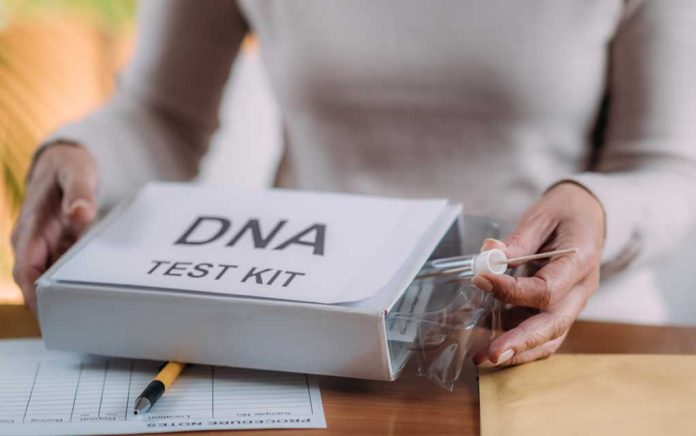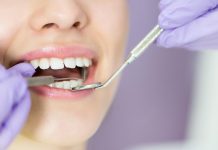
(AscendHealthy.com) – We might have learned about our heritage from our parents and relatives. Perhaps we’ve even taken time to study our family history for multiple generations, hoping to find long-lost cousins.
In recent years, another way of finding out about our background has become increasingly popular: Home DNA kits. Learn all about these products, from their accuracy to pros and cons, below.
What’s Involved In Using Home DNA Kits?
Home DNA kit companies use genetic science to help us learn about our ancestry. Some of the most popular ones include 23andMe, Ancestry DNA, and Living DNA.
Using these products involves several simple steps:
- Decide which home DNA kit company to use and sign up to receive the product.
- Follow the kit’s directions, which typically includes a vial to spit into, a pre-addressed bag for returning the saliva, and an identification number.
- Register your ID number so that the lab can match your saliva to your name.
- Receive and read the results!
The analysis from the lab is based on our DNA sequence, known as our genotype. Recent advances in genotyping have allowed companies to utilize this science for home use.
Home DNA kits provide different types of information based on our individual genotypes. We may receive details about our ancestry and culture, data about our possible risk for various health conditions, and even information about our traits like our hair color.
By contrasting our pieces of DNA to reference groups, home DNA kit companies may assign us to different categories. These comparisons might become increasingly detailed, allowing scientists to use both past studies and statistics derived from individuals with identical genetic markers.
Do Home DNA Kits Ensure Accuracy?
The information provided by home DNA kit companies might seem impressively detailed. But it’s important to understand the possible limitations and accuracy issues.
The Food and Drug Administration (FDA) cautions that the test results may not be entirely accurate. Referring to home DNA kit types of products as “direct to consumer tests,” the FDA urges consumers to be aware of the following considerations:
- Companies vary in how much scientific data they can show to back up the reports that we receive.
- Although medicine has achieved remarkable progress in understanding what determines whether we develop various health conditions, all risk factors are not fully known. Receiving negative home DNA test results for a disease, therefore, is not a guarantee.
- The FDA does not review direct-to-consumer tests designed for general health or non-medical uses.
- Even medical direct-to-consumer tests undergo limited review, with the FDA primarily looking at how we are told to collect the sample and interpret the results.
- Home DNA kit companies are not regulated with regard to which genetic tests they perform. As a result, the analysis we receive may vary, depending on which company we choose.
If we have questions or concerns about the data we receive, the FDA recommends meeting with a health care provider or genetic counselor. For example, a home DNA kit analysis might report we are at risk for diabetes. Talking with our physician about that report may give us a professional, personalized plan for any potential risk.
What are the Pros and Cons of Home DNA Kits?
Despite the limitations of home DNA kits, the reports may offer useful information. We might discover relatives we never knew and become better informed about our health. There’s even a specialized home DNA test kit that promises to match us up with the perfect roommate!
Not sure if a home DNA kit is right for you? Here are the pros and cons:
We may acquire knowledge about our potential risks for various health conditions even before we experience symptoms.
Pro: We might then meet with our doctors to discuss how we might reduce our risk or begin treatment.
Con: If the tests show we are at risk for multiple diseases, we may experience anxiety or depression. One study showed that if we discover we have a genetic predisposition for depression, we might feel even more depressed.
Genetic home tests are increasingly inexpensive and convenient.
Pro: Those factors allow us to take advantage of advances in DNA research.
Con: The results might show conflicting or inconclusive information, leaving some of us struggling to figure out the results unless we pay for a professional healthcare consultation.
For those with a family history of breast cancer, some home DNA kits offer to test for specific mutations in the BRCA1 and BRCA2 genes that raise our risk for both ovarian and breast cancer.
Pro: We might feel relieved to learn that we do not have one of those mutations.
Con: Other mutations exist, along with non-genetic reasons for breast cancer. Therefore, our relief might make us decide to skip mammograms in the future, potentially causing a future cancer occurrence to go undiagnosed.
We may succeed in expanding our knowledge of our ancestry through home DNA kits.
Pro: Discussing the results and tracking down long-lost relatives with these kits may provide enjoyment for the entire family, offering new connections.
Con: Online identity theft continues to be a threat to our privacy. We need to read through the company’s privacy practices before choosing to sign up for the kit.
Home DNA kits may offer suggestions for general improvements to our health, from improving our sleep habits to boosting our veggie consumption.
Pro: By using these recommendations, we have the opportunity to enhance our well-being and our future.
Con: These tests do not all have laboratory accreditation. That means the results may not be accurate. For example, we might receive a recommendation to eat more whole grains without knowing we have a gluten intolerance, potentially causing digestive issues.
Home DNA kits may offer us the opportunity to expand our knowledge about ourselves. We might connect with new relatives, for example, and learn about our potential risks for different conditions. It’s important, though, to understand the possible limitations, particularly concerning health-related data. By consulting with our medical team, we may use these tests to enhance our overall well-being.
~Here’s to Your Healthy Ascension
Copyright 2023, AscendHealthy.com




















